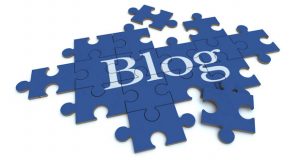 THE HR PROFESSIONAL’S VIEW
THE HR PROFESSIONAL’S VIEW
LAUREN STIRLING,
HEAD OF HR AND PEOPLE DEVELOPMENT, ELIOR
Employers play a crucial role in raising awareness about mental health and providing education to help eliminate the associated stigma. Physical ailments are often more recognisable and cared for, but mental health deserves equal attention. In the past, there was a tendency to adopt a ‘pull yourself together and get on with it’ attitude.
Modern life brings more complexities, with increased pressures from work, finances, and living conditions, alongside higher expectations. Mental health charity Mind reports that one in four people will experience a mental health problem of some kind each year in England.
Facilities management often involves a fragmented workforce, with employees spread across different sites in frontline, mobile, and head office roles. Regular communication about mental health is essential for reaching everyone effectively. This should involve a multi-platform approach to engage the widest possible audience. Although Elior has ensured all colleagues can now be contacted via email since the pandemic, not all FM companies have this capability. We also know that emails may not always be read. Therefore, sharing content in various formats—across intranets, videos, screensavers and through hosting in-person and virtual events—is vital. We’ve found QR codes to be particularly effective as well.
Our ‘Wellbeing Wednesdays’ feature resources, news articles, podcasts, and webinars, and we create videos dedicated to specific topics such as sleep, hydration, and vitamins. We also host ‘power hours’ with guest speakers discussing topics like ADHD, autism, and neurodiversity, which resonate with many people. Coffee mornings with cue cards prompting discussion encourages open conversations and foster new connections. There are numerous awareness days, such as World Mental Health Day and Time to Talk Day, which can serve as opportunities to share relevant content.
Having a dedicated mental health support email, managed by trained mental health first aiders, demonstrates care and provides a less intimidating platform for people to reach out. Many find it easier to send an email rather than make a phone call or initiate a face-to-face conversation. We’ve seen much more interaction via email. Sharing concerns can truly make a difference.
Businesses don’t have to be alone in supporting their workforce with mental health. Quite often it is good to ask the experts and consulting with professional mental health organisations can be highly beneficial. We’ve partnered with Able Futures, part of the Department for Work and Pensions. Via Able Futures we can offer colleagues a nine-month programme with access to dedicated support and counselling resources, including webinars and coping strategies. Employees can choose the tools that work best for them. We’ve seen a positive response.
To foster a supportive, balanced workplace, managers need to be adequately equipped to identify and support any mental health issues that may arise within their teams. Some managers will have better soft skills than others and will be more comfortable addressing mental health issues in the best way, others will need more guidance. Ensuring a variety of resources are available that managers can dip in and out of when they need them is key.





